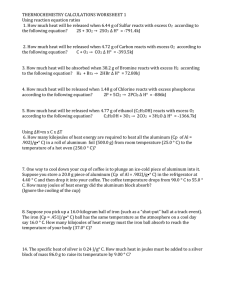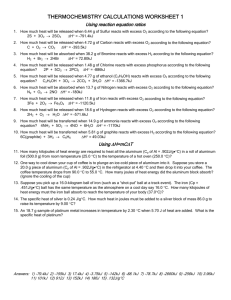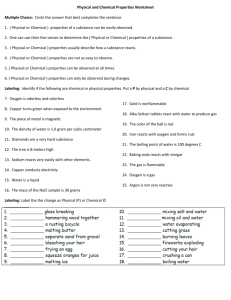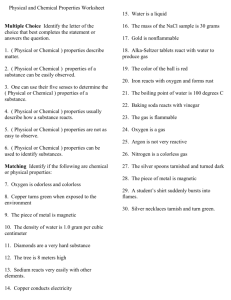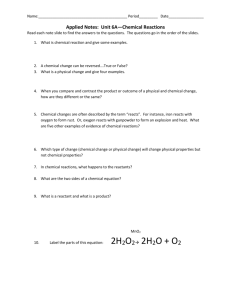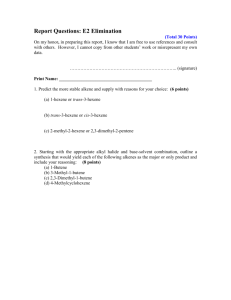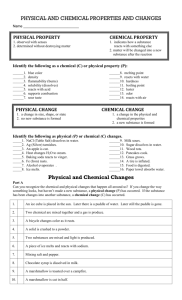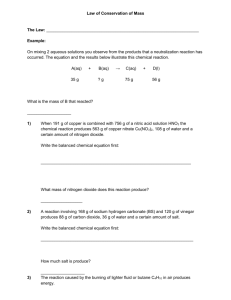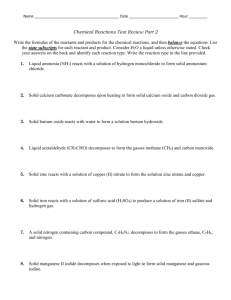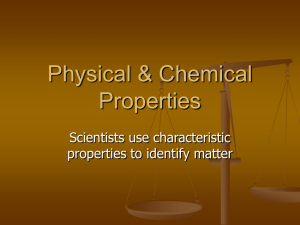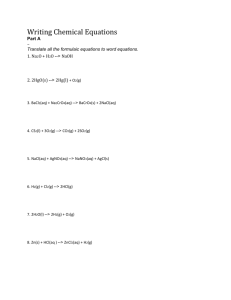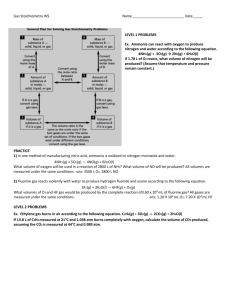WS#3 Writing Thermochemical equation and calculating heat of the
advertisement
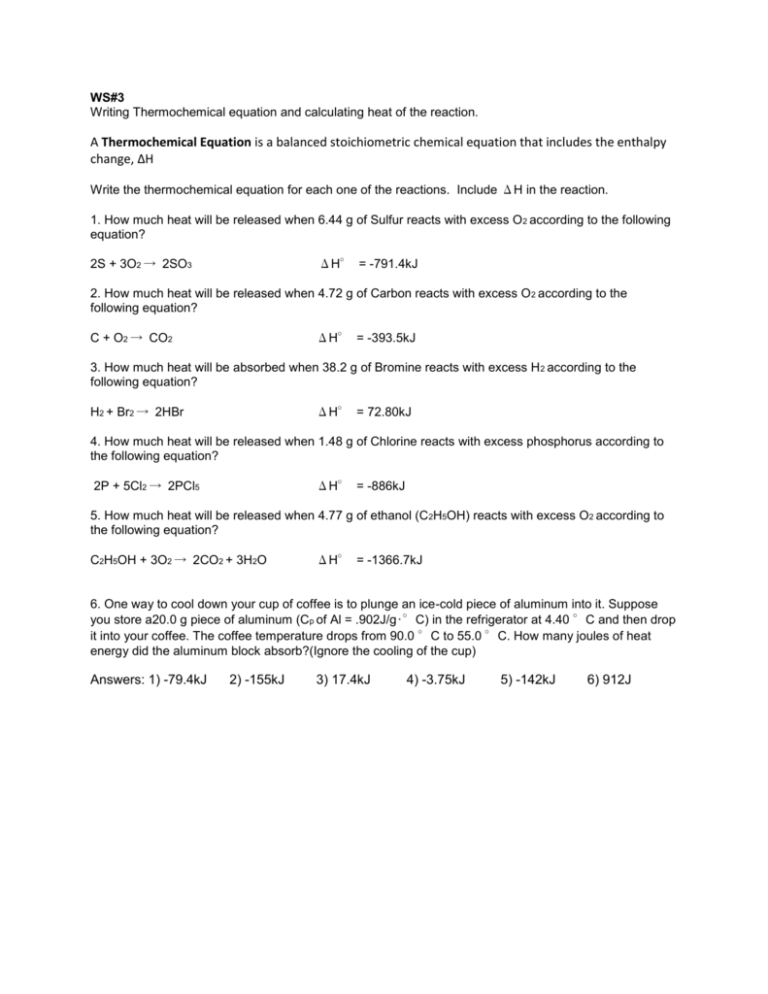
WS#3 Writing Thermochemical equation and calculating heat of the reaction. A Thermochemical Equation is a balanced stoichiometric chemical equation that includes the enthalpy change, ΔH Write the thermochemical equation for each one of the reactions. Include ΔH in the reaction. 1. How much heat will be released when 6.44 g of Sulfur reacts with excess O 2 according to the following equation? 2S + 3O2 → 2SO3 ΔH° = -791.4kJ 2. How much heat will be released when 4.72 g of Carbon reacts with excess O 2 according to the following equation? C + O2 → CO2 ΔH° = -393.5kJ 3. How much heat will be absorbed when 38.2 g of Bromine reacts with excess H 2 according to the following equation? H2 + Br2 → 2HBr ΔH° = 72.80kJ 4. How much heat will be released when 1.48 g of Chlorine reacts with excess phosphorus according to the following equation? 2P + 5Cl2 → 2PCl5 ΔH° = -886kJ 5. How much heat will be released when 4.77 g of ethanol (C2H5OH) reacts with excess O2 according to the following equation? C2H5OH + 3O2 → 2CO2 + 3H2O ΔH° = -1366.7kJ 6. One way to cool down your cup of coffee is to plunge an ice-cold piece of aluminum into it. Suppose you store a20.0 g piece of aluminum (Cp of Al = .902J/g•°C) in the refrigerator at 4.40 °C and then drop it into your coffee. The coffee temperature drops from 90.0 °C to 55.0 °C. How many joules of heat energy did the aluminum block absorb?(Ignore the cooling of the cup) Answers: 1) -79.4kJ 2) -155kJ 3) 17.4kJ 4) -3.75kJ 5) -142kJ 6) 912J
